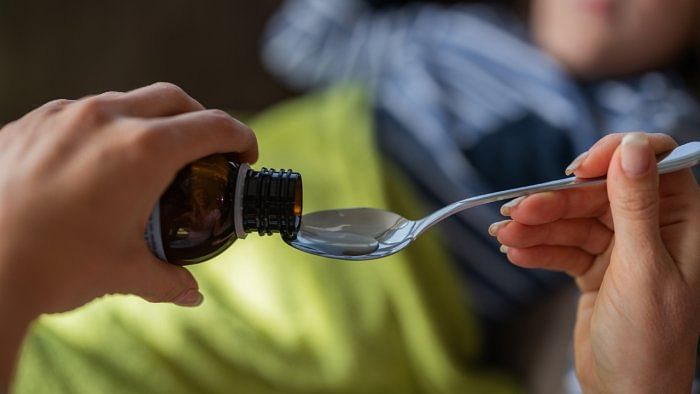
Following three WHO alerts on contaminated made-in-India cough syrups in eight months, the Centre has changed the rules for exporting such medicines, asking the manufacturers to test the samples at government-designated laboratories before shipping.
The Directorate General of Foreign Trade has revised a section of the export policy under which cough syrups will be cleared for sale abroad only after a screening test and production of a certificate of analysis from one the laboratories identified by the government. The new policy will come into effect from June 1.
The laboratories where the tests can be conducted are Indian Pharmacopoeia Commission at Ghaziabad; Central Drugs Laboratory, Kolkata; Central Drug Testing Laboratories in Chennai, Mumbai and Hyderabad and Regional Drug Testing Laboratories in Chandigarh and Guwahati.
In addition, the samples can be examined at any of the NABL (National Accreditation Board for Testing and Calibration Laboratories) accredited state drug testing laboratories.
The change in the export policy came after three World Health Organisation alerts in which the UN body red-flagged contamination by diethylene glycol and ethylene glycol, chemicals that are toxic to humans when consumed and can prove fatal.
Such contaminated syrups, made by Indian pharmaceutical companies, were reportedly linked to children’s deaths in The Gambia in October and Uzbekistan in December. Last month, the WHO reported made-in-India cough syrups being sold in Marshall Islands and Micronesia with an “unacceptable level” of two contaminants that are not safe for human consumption.
Director General Foreign Trade Santosh Kumar Sarangi said all pharmaceutical products must meet global standards and quality requirements. "This is a continuous effort which has been started with cough syrup. It is our endeavour that any cough syrup exported from India must meet minimum benchmark requirement of quality standards. Therefore they will be exported after being tested in specified labs," Sarangi said at an event.
Experts outside the government, however, have doubts on the efficacy of such a step besides having questions on the quality of cough syrups consumed within the country.
“We have serious doubts about the legality of this move since the notification has been issued under the Foreign Trade Act and not the Drugs & Cosmetics Act which is the relevant legislation. The notification is likely to be struck down by a court of law on the grounds that the government cannot regulate the pharma industry under the Foreign Trade Act,” T Prashant Reddy, lawyer and co-author of Truth Pill, a book on Indian drug regulatory system, told DH.
“We also doubt the feasibility of the move. The Indian industry produces huge amounts of medicines in syrup form. Does the Govt really have the capacity to test each batch in a timely manner?” he added. "Also this solution does nothing for domestic consumers. It applies only to exports. The Government must explain the rationale for this move.”
